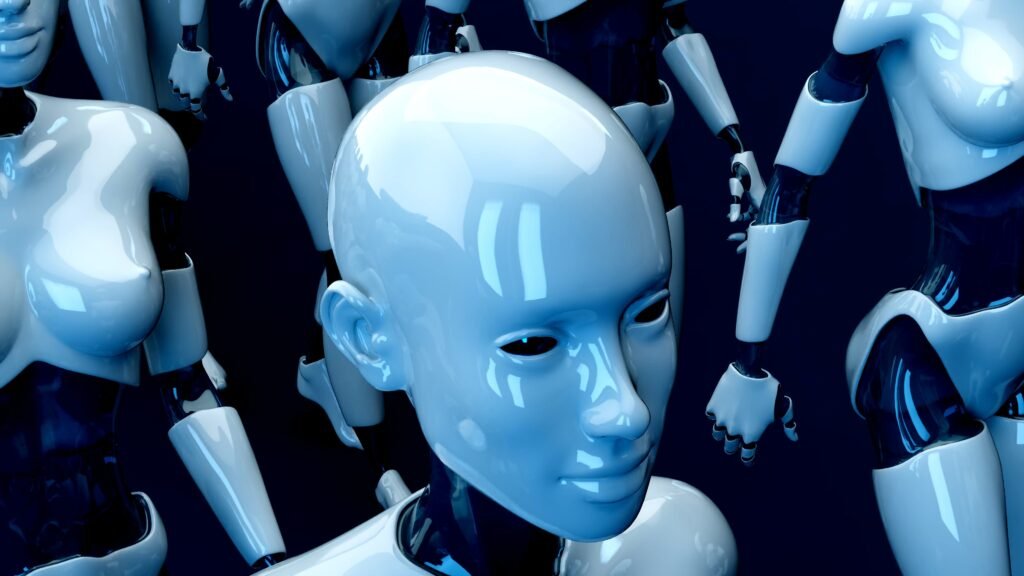Artificial Intelligence (AI) is heralded as a revolution that will shape the next decade, promising to make our lives better in numerous ways. With the potential to not only match but exceed human intelligence, AI holds the key to improved efficiency, saved time and money, and even saved lives. Its applications in healthcare, public health programs, and education are highly promising. However, as we embark on this exciting journey, concerns arise about the impact of AI on essential aspects of human existence and autonomy. The success of AI will ultimately hinge on how it is engineered, distributed, and updated, paying careful attention to civil rights, economic inequalities, and data governance. Striking a balance between positive outcomes, such as eradicating global poverty, and negative outcomes, such as wealth concentration and weaponization, is crucial. As we delve into the era of AI, attention must be given to privacy concerns, discrimination, and the social and political implications that come with it. By aligning technology with human values and prioritizing human well-being, we can navigate the AI revolution with optimism and responsibility.

The Potential of Artificial Intelligence
Artificial intelligence (AI) has the potential to revolutionize various aspects of human life. Experts predict that in the next decade, AI will make most individuals better off. One of the reasons for this optimism is the belief that AI has the ability to match or even exceed human intelligence and capabilities. Imagine a future where machines can process information, learn and adapt just like humans – the possibilities are endless.
But the potential of AI goes beyond just intelligence. AI systems have the power to save time, money, and lives. With advanced algorithms and machine learning, AI can automate tedious tasks, make accurate predictions, and solve complex problems quickly and efficiently. From diagnosing diseases to driving cars, AI has already proven its effectiveness in various fields. In addition to that, AI offers personalized experiences, tailoring recommendations and services to individual preferences. This level of customization can greatly enhance user satisfaction and create a more enjoyable and convenient user experience.
Applications of AI
AI has promising applications in several industries, including healthcare, public health programs, and education. In the healthcare sector, AI can assist in diagnosis, treatment planning, and drug development. With AI algorithms analyzing vast amounts of medical data, doctors can make more accurate diagnoses and devise personalized treatment plans for patients. In public health programs, AI can help analyze population health data and identify patterns to predict and prevent outbreaks of diseases. In education, AI can personalize learning experiences, adapt curriculum to individual student needs, and provide valuable feedback to both teachers and students. With AI-powered educational tools, students can have a tailored learning experience that maximizes their potential.
Concerns about AI
Despite the positive potential of AI, there are concerns that need to be addressed. One of the major concerns is the impact of AI on human autonomy. As AI systems become more advanced, there is a fear that they might surpass human decision-making capabilities, leading to a loss of control over our own lives. Additionally, there are concerns about the impact of AI on the essential elements of being human, such as empathy, emotion, and creativity. Machines lack the ability to truly understand and replicate these qualities, which raises questions about how AI might affect our society and human interactions.
Experts’ opinions on the future impact of AI are divided. According to a survey, 63% of experts are hopeful that most individuals will be better off in 2030 due to AI advancements. However, 37% are more skeptical and believe that people will not be better off. This divergence of opinions reflects the complexity and uncertainty surrounding the long-term effects of AI.
Engineered, Distributed, and Updated
The success of AI depends on how the technology is engineered, distributed, and updated. Engineering AI systems with ethical considerations is crucial to ensure their positive impact. By embedding values such as fairness, transparency, and accountability into AI algorithms, we can mitigate potential harms and biases. Moreover, it is important to distribute AI technology equitably, ensuring that it is accessible to all individuals, regardless of their socioeconomic status. This includes providing affordable and inclusive access to AI tools, knowledge, and resources.
Additionally, regular updates and improvements are necessary to keep up with the evolving AI landscape. Constant monitoring of AI systems is crucial to identify and address any biases, errors, or unintended consequences. By continuously updating and refining AI technology, we can optimize its performance and minimize potential risks.

Issues Raised by AI
The rise of AI also raises important issues that need to be carefully considered. One such issue is civil rights. As AI becomes more integrated into society, there is a risk that it could infringe upon individuals’ civil rights, such as privacy and freedom of expression. Moreover, AI has the potential to exacerbate existing economic inequalities. If not properly regulated and monitored, AI could concentrate wealth and power in the hands of a few, creating a digital divide.
Data governance is another critical concern. The vast amount of data collected and utilized by AI systems raises questions about ownership, privacy, and security. It is important to establish robust regulations and frameworks to ensure responsible and ethical data practices.
Furthermore, AI has the potential to influence societal beliefs and values. Algorithms that power AI systems are trained on historical data, which can perpetuate biases and reinforce existing social inequalities. It is crucial to address this issue by actively working towards inclusive and diverse datasets, as well as transparent and accountable AI algorithms.
Aligning AI with Human Values
To harness the full potential of AI, it is important to align it with human values. Prioritizing human well-being should be at the forefront of AI development and implementation. AI systems should be designed to enhance human capabilities and serve societal needs. This involves ensuring that AI respects human dignity, upholds fundamental rights, and promotes overall human flourishing.
Moreover, it is essential to ensure that AI technology aligns with human values. This means programming ethical guidelines and principles into AI systems to prevent them from engaging in harmful or unethical behaviors. By incorporating values such as fairness, accountability, and transparency, we can ensure that AI systems operate in a manner that aligns with our societal norms and moral standards.
Lastly, we must not overlook the importance of human cognition. While AI can automate many tasks and processes, it is crucial to retain the role of human judgment and decision-making. The unique qualities of human intelligence, such as empathy, creativity, and moral reasoning, should complement and guide the use of AI technology. Human oversight and critical thinking are essential to prevent the misuse or unintended consequences of AI.

Positive and Negative Outcomes
AI has the potential to bring about both positive and negative outcomes. On the positive side, AI could play a significant role in eliminating global poverty. AI-powered technologies can help address social and economic inequalities by increasing access to education, healthcare, and economic opportunities. By optimizing resource allocation and decision-making, AI can contribute to a more equitable and sustainable world.
However, there are concerns about potential negative outcomes as well. One of the biggest concerns is wealth concentration. If not properly regulated, AI could exacerbate income disparities, leading to a concentration of wealth in the hands of a few individuals or corporations. Additionally, there is a fear that AI could be weaponized and used in malicious ways, posing a threat to global security.
Discussing Concerns
As AI continues to advance, it is important to address concerns and potential risks. Privacy concerns are one of the most discussed issues surrounding AI. With the increasing amount of data collected and analyzed by AI systems, there is a need to establish strong privacy regulations to protect individuals’ personal information.
Discrimination is another concern that needs to be tackled. AI algorithms can inadvertently perpetuate biases present in the data they are trained on, leading to discriminatory outcomes. Efforts should be made to ensure fairness and prevent algorithmic bias in AI systems.
While there are concerns, AI also opens up new opportunities in science and humanitarian efforts. AI can assist in scientific research, accelerating discoveries and breakthroughs in various fields. Additionally, AI-powered systems can aid in humanitarian efforts by analyzing data and providing valuable insights for disaster response, resource allocation, and social welfare programs.
Social and Political Implications
The social and political implications of AI are profound. The potential use of AI in power pursuits raises important ethical and governance questions. AI has the ability to influence decision-making, shape public opinions, and concentrate power in the hands of a few. There is a need for transparent and accountable AI governance frameworks to prevent the misuse of AI in political or authoritarian regimes.
Moreover, AI can play a crucial role in responding to geopolitical crises. From managing refugee crises to predicting and mitigating conflicts, AI has the potential to assist in addressing complex global challenges. By leveraging AI capabilities, policymakers can make informed decisions, allocate resources effectively, and design effective strategies for crisis management.
In conclusion, the potential of artificial intelligence is immense. From matching and exceeding human intelligence to providing personalized experiences, the applications of AI are wide-ranging. However, it is important to address concerns regarding human autonomy, the impact on essential human elements, and the potential negative outcomes of AI. By engineering, distributing, and updating AI technology responsibly, we can harness its potential for positive outcomes while ensuring it aligns with human values. Addressing issues raised by AI, discussing concerns, and considering social and political implications are key to maximizing the benefits and mitigating the risks of AI.




